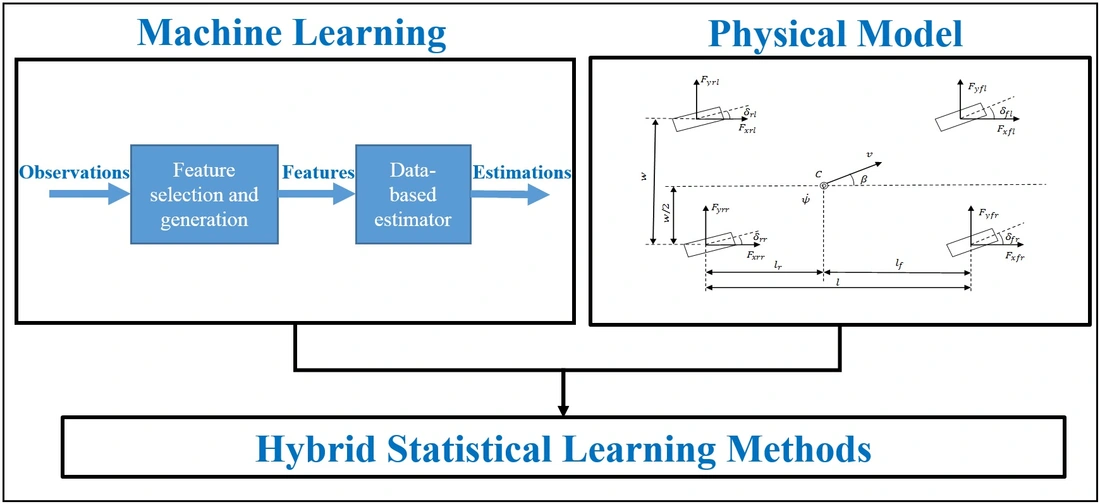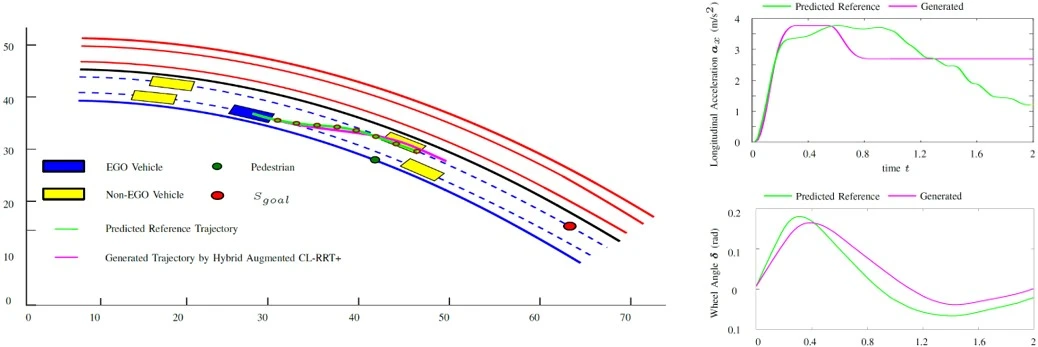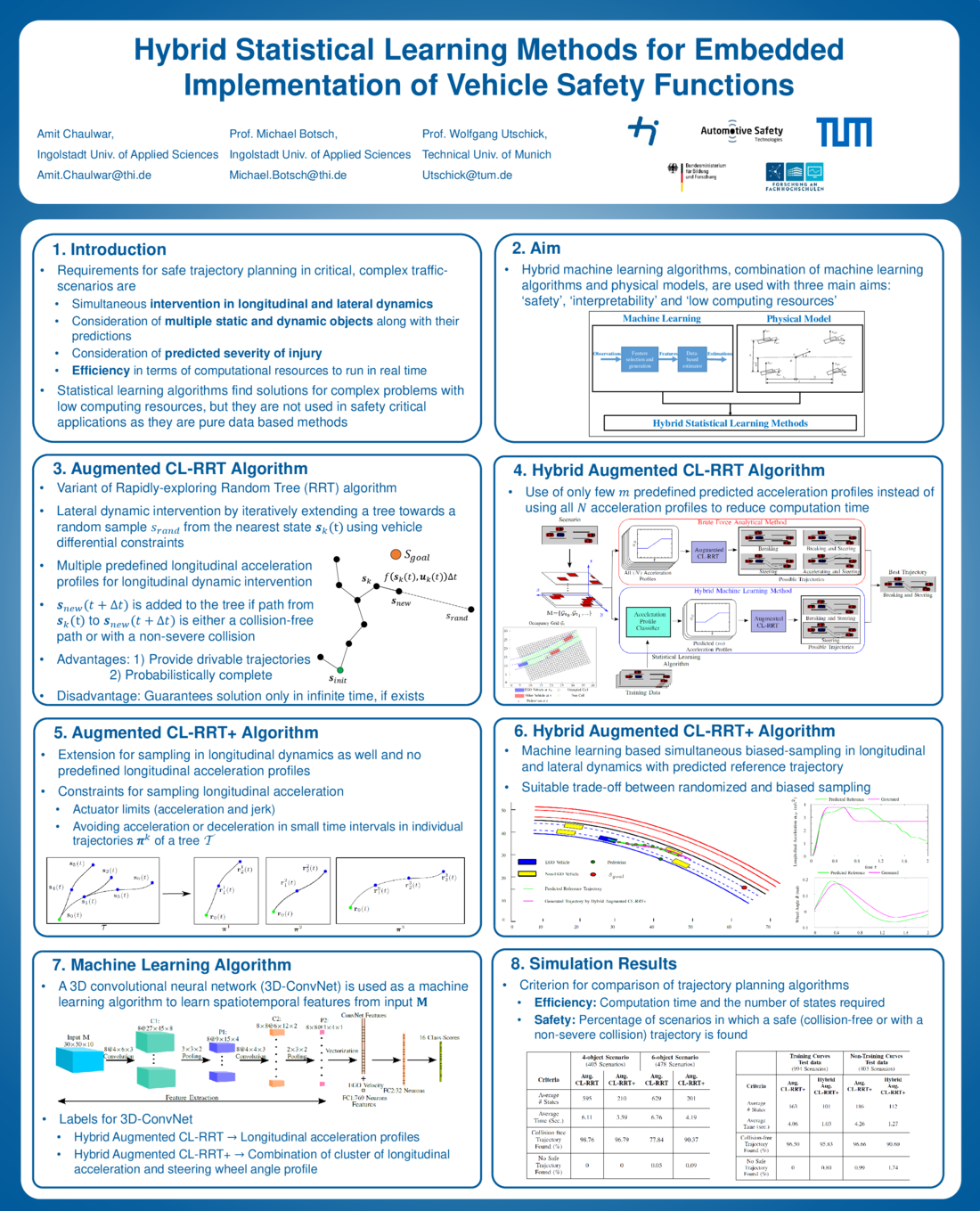Statistical learning and machine learning methods offer the possibility of finding an algorithmic solution for many practical problems with low computational resources. But they are seen as a “Black-Box” as they are pure data-based methods. This is the reason why statistical learning methods have so far not been used for safety-critical applications. Hybrid statistical learning methods, which are combinations of data-based methods and physical models, open a new way to work around the disadvantages of pure data-based methods while exploiting their advantages for vehicle safety algorithms.
Hybrid statistical learning methods for the embedded implementation of vehicle safety systems (HySLEUS)
The main scientific aim of the project is the exploration of hybrid statistical learning methods for vehicle safety algorithms and their implementation. The basic idea of the planned combination is a search of an approximate solution with statistical learning methods and finding a final solution with physical models. Hereby, ‘safety’ and ‘low computational resources’ are the two evaluation criteria defined for the developed methods.
As a primary application in the vehicle active safety field, the challenging task of safe trajectory planning in critical traffic-scenarios is considered. Two variants of analytical sampling-based algorithms, ‘Augmented CL-RRT’ and ‘Augmented CL-RRT+’, are developed for safe trajectory planning with dynamic constraints in critical traffic-scenarios with multiple static and dynamic objects. The predicted severity of collision is also considered for trajectory selection in case a collision-free trajectory is not found. These algorithms are combined with a machine learning algorithm (3D Convolutional Neural Network) to increase the convergence rate.The algorithms are validated in real vehicles on the CARISSMA test track.






![[Translate to English:] Logo Akkreditierungsrat: Systemakkreditiert](/fileadmin/_processed_/2/8/csm_AR-Siegel_Systemakkreditierung_bc4ea3377d.webp)








![[Translate to English:] Logo IHK Ausbildungsbetrieb 2023](/fileadmin/_processed_/6/0/csm_IHK_Ausbildungsbetrieb_digital_2023_6850f47537.webp)


